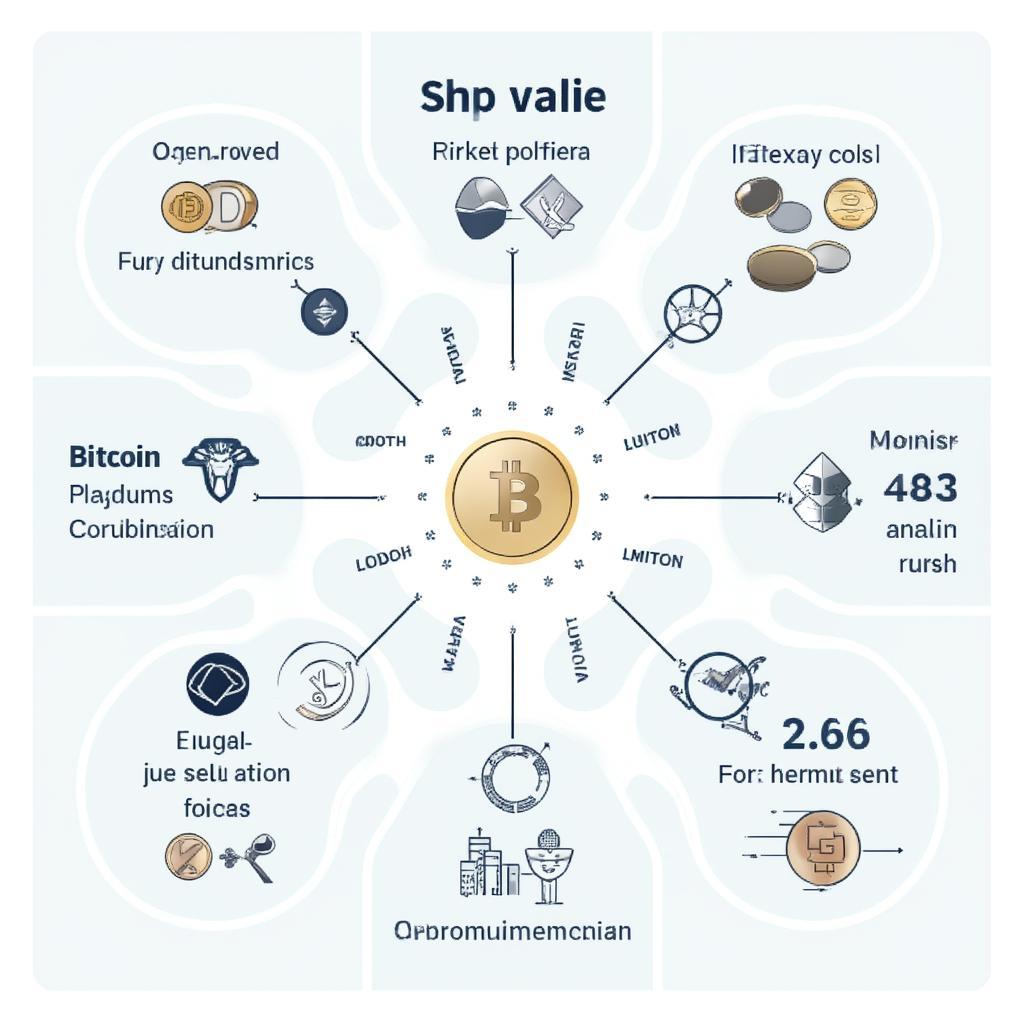Cryptocurrency for Dummies: A Beginner’s Guide to the Digital Gold Rush

Cryptocurrency has become a buzzword, sparking curiosity and confusion in equal measure. This guide aims to demystify the world of digital currencies, providing a foundational understanding of what cryptocurrency is, how it works, and why it matters. We’ll break down complex concepts into digestible chunks, making this seemingly daunting topic accessible to everyone, even those with zero prior knowledge.
What is Cryptocurrency?
Cryptocurrency, at its core, is digital or virtual money that uses cryptography for secure financial transactions. Unlike traditional currencies issued by governments, cryptocurrencies operate independently on a technology called blockchain. This decentralized nature eliminates the need for intermediaries like banks, promising faster and cheaper transactions. Think of it as sending money directly to someone across the globe without needing a bank to process the transfer. This peer-to-peer system is a key characteristic that sets cryptocurrencies apart.
Understanding Blockchain Technology
Blockchain, the underlying technology of most cryptocurrencies, is a distributed ledger that records all transactions across a network of computers. This shared record is transparent and immutable, meaning once a transaction is recorded, it cannot be altered or reversed. This inherent security is a significant advantage of blockchain and contributes to the trust placed in cryptocurrencies. Each block in the chain contains a timestamp and a link to the previous block, forming a chronological and tamper-proof record of all transactions.
How Does Cryptocurrency Work?
Cryptocurrencies rely on complex mathematical algorithms and cryptographic techniques to secure transactions and control the creation of new units. This process, often referred to as “mining,” involves solving complex mathematical problems to validate transactions and add them to the blockchain. Miners are rewarded with newly created cryptocurrency for their efforts, incentivizing them to maintain the network’s security and integrity.
Different Types of Cryptocurrencies
While Bitcoin is the most well-known cryptocurrency, thousands of others exist, each with unique features and purposes. These are often referred to as altcoins (alternative coins). Some popular examples include Ethereum, Litecoin, and Ripple. Ethereum, for instance, enables the creation of smart contracts, self-executing agreements with the terms of the agreement directly written into lines of code. This opens up a world of possibilities beyond simple financial transactions.

Why Should I Care About Cryptocurrency?
Cryptocurrency presents a paradigm shift in finance, offering potential benefits such as lower transaction fees, faster processing times, and increased financial privacy. It also empowers individuals in countries with unstable economies or limited access to traditional banking systems. However, it’s crucial to acknowledge the risks associated with cryptocurrency investments, including volatility, regulatory uncertainty, and the potential for scams.
Investing in Cryptocurrency: A Word of Caution
Investing in cryptocurrency can be lucrative, but it’s essential to approach it with caution. The market is highly volatile, meaning prices can fluctuate dramatically in short periods. Thorough research, understanding your risk tolerance, and diversifying your portfolio are crucial for navigating this nascent asset class. Never invest more than you can afford to lose.
“Cryptocurrency represents a revolutionary technology with the potential to reshape the financial landscape. However, it’s crucial to approach it with a balanced perspective, understanding both the opportunities and the risks involved.” – Dr. Amelia Hernandez, Chief Economist at the Institute for Decentralized Finance.
Cryptocurrency Wallets: Keeping Your Digital Assets Safe
Cryptocurrency wallets are software or hardware devices used to store your private keys, which are essential for accessing and managing your cryptocurrencies. Choosing the right wallet is crucial for ensuring the security of your digital assets. Different types of wallets offer varying levels of security and convenience, from online wallets for everyday transactions to hardware wallets for long-term storage.

The Future of Cryptocurrency
The future of cryptocurrency remains uncertain, but its potential impact on various industries is undeniable. From decentralized finance (DeFi) to supply chain management and digital identity, blockchain technology and cryptocurrencies are poised to revolutionize how we interact with the digital world. While challenges remain, the ongoing innovation and growing adoption suggest a bright future for this transformative technology.
Is Cryptocurrency Legal?
The legality of cryptocurrency varies significantly across countries. Some nations have embraced it, while others have imposed restrictions or outright bans. It’s crucial to understand the regulatory landscape in your jurisdiction before engaging with cryptocurrencies.
“Regulation is a double-edged sword for cryptocurrency. While it can provide much-needed clarity and consumer protection, excessive restrictions could stifle innovation and hinder the growth of this promising technology.” – Mr. David Lee, Senior Partner at Blockchain Ventures.

Conclusion
Cryptocurrency, while initially complex, is a fascinating and potentially transformative technology. This guide provides a starting point for understanding the basics of cryptocurrency, empowering you to delve deeper into this exciting world. Remember to approach cryptocurrency with a cautious yet optimistic mindset, staying informed and continuously learning as this dynamic landscape evolves. Begin your cryptocurrency journey today!
FAQs
-
What is the easiest cryptocurrency to understand for beginners? Bitcoin is often considered the easiest to understand as it’s the original and most well-known cryptocurrency.
-
Where can I buy cryptocurrency? Cryptocurrency can be purchased on cryptocurrency exchanges.
-
How do I choose a cryptocurrency wallet? Consider your security needs and technical expertise when choosing a wallet. Hardware wallets offer the highest level of security.
-
Is cryptocurrency a good investment? Cryptocurrency can be a high-risk, high-reward investment. Do your research and understand your risk tolerance before investing.
-
What is the difference between Bitcoin and Ethereum? Bitcoin primarily serves as a digital currency, while Ethereum is a platform for decentralized applications and smart contracts.
-
What are the risks of investing in cryptocurrency? Risks include price volatility, regulatory uncertainty, and the potential for scams or hacking.
-
How can I stay updated on cryptocurrency news? Follow reputable cryptocurrency news websites, blogs, and social media channels.
-
What is the environmental impact of cryptocurrency? Some cryptocurrencies, like Bitcoin, require significant energy for mining, raising environmental concerns. More sustainable alternatives are emerging.
-
Where can I learn more about cryptocurrency? Numerous online resources, courses, and communities offer in-depth information about cryptocurrency.




